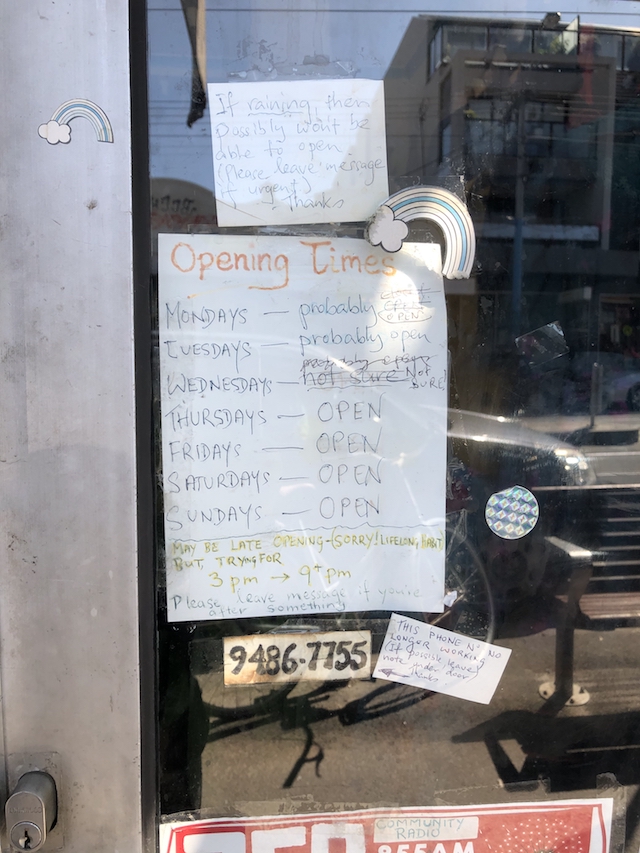Unlock the Magic in Your Story Now
Get the Free 20 questions to Ask Before Launching Your Idea workbook when you sign up for occasional updates.
Get the Free 20 questions to Ask Before Launching Your Idea workbook when you sign up for occasional updates.
What Does Being Successful Mean To You?
filed in Success

This question about success is one that members of the Right Company have been reflecting on this past week.
It seems like a question that should have a straightforward answer.
After all, if success is something we aspire to, we must know what our ambitions are.
If we don’t know where we want to go, how will we know which path to take?
What does being successful mean to you?
Image by Emma
Share this article
The Myth Of The Gifted Storyteller
filed in Story Skills, Storytelling

Over and over again, we’ve heard people like Steve Jobs described as ‘a gifted storyteller’. We’ve come to believe that storytelling is an art reserved for the chosen few—that great storytellers are born, not made. How can that possibly be true?
What all great storytellers have in common is more than a talent for storytelling. They aren’t ‘naturals’ or ‘born storytellers’. What they are is ‘practised storytellers.’
Last weekend I was at an event where the legendary author Margaret Atwood spoke. When someone asked if she read fiction and why, she told the audience she reads to understand. ‘I want to know how they did that,’ she said. One of the best storytellers of our generation, a woman who has twice won the Booker Prize, whose books sell in their millions, reads other people’s stories to learn from them and make her stories better.
Storytelling is an act, something you practice—a skill you can learn and get better at.
*The Story Skills Workshop is back by popular demand. We open for registration on March 3rd. You can register for more information by visiting here.
Image by David Geller
Share this article
The Efficiency Paradox
filed in Meaningful Work, Worldview

The young woman got off the tram, carried along amid the throng on their way to the various law firms along Collins Street. She walked briskly, heels clacking, her big Beats headphones clamped over her ears. Two bags were slung across her body. One leather contained her laptop, the other made of cloth held a ball of the bright yellow wool trailing from the needles she held in her hands.
Her hands worked furiously as she walked—one plain, one purl, one plain, one purl. The needles continued to click in and out through the yellow wool as she knitted, listened and walked, walked, knitted and listened—without ever needing to stop or look down. She’d have a podcast and half a scarf under her belt before she reached the office.
This woman was making efficient use of her time, but I’m not sure that’s the same as making the most of it. Just because it’s possible to do two or three things at once doesn’t mean we should.
What are we trading for efficiency? What’s the cost to us?
Image by Ross Sneddon
Share this article
Promises Worth Keeping
filed in Meaningful Work, Success, Worldview

While I was out walking this weekend I came across a sign on a shop door detailing the opening times. It read:
MONDAYS—probably
TUESDAYS-probably
WEDNESDAYS—probably not sure Not SURE!
THURSDAYS—OPEN
FRIDAYS—OPEN
SATURDAYS—OPEN
SUNDAYS—OPEN
MAY BE LATER FOR OPENING (SORRY! LIFELONG HABIT)
BUT TRYING FOR 3 PM-9 PM
It’s easy for a sometimes probably, to become a maybe never.
What promises are you making to yourself and others that are worth keeping?
This is a photo of the sign.

Image by Richard Balog
Share this article
The Sliding Scale Of Ambition
filed in Meaningful Work, Success
 There are many ways Leanne could leverage the success of her popular hair salon.
There are many ways Leanne could leverage the success of her popular hair salon.
She could extend her opening hours or enter national competitions. She could hire more stylists and open more branches. She could create a line of hair products or franchise her business process and ideas.
But Leanne chooses to do none of these things—not because she isn’t ambitious, but because success for her is delivering the best experience in one exceptional salon, to earn the trust and loyalty of delighted customers.
We sometimes fall into the trap of shooting for someone else’s vision of success. We seize every opportunity because we can, and not because it’s what we really want.
Ambition is always on a sliding scale.
What does being successful mean to you? What do you want?
Image by Aw Creative
Share this article
On Strengths
filed in Meaningful Work, Story Skills, Success
 If a friend or colleague asked you to list their strengths, I’m guessing you’d have no trouble coming up several of their attributes.
If a friend or colleague asked you to list their strengths, I’m guessing you’d have no trouble coming up several of their attributes.
But if they asked you to share a list of your strengths you’d likely hesitate.
Why is that?
We don’t spend a lot of time reflecting on our skills and talents, because we’ve been conditioned to be humble.
We largely focus on our ‘areas for improvement—the things we lack confidence and competence in, to the detriment of our gifts and our genius.
Of course, we can improve our weakness. But we can also amplify our strengths.
What do you already bring to the world and how can you do more of that?
Image by Annie Spratt
Share this article
Opportunity Knocks
filed in Meaningful Work, Success

There was a talent show on television when I was a child called, Opportunity Knocks. It wasn’t unlike some of the reality talent shows broadcast on TV today. It was lower budget and had a lot less glitz and glamour.
Prospective contestants wrote to the show’s producers via snail mail pitching to audition. I doubt anybody knew the criteria for being picked to appear on the show. I know I didn’t have a clue how to improve my chances when I sent off a letter to the address that flashed across the screen at the end of the show. Luckily my pitch wasn’t successful because I was equally clueless about what my winning act would be if I were chosen.
Opportunity is defined as—a time or set of circumstances that makes it possible to do something.
It’s believed to be that fortuitous moment when the stars align. Conventional wisdom reminds us that the chance of success occurs when opportunity knocks. This implies that opportunity is a happening that’s out of our control.
The truth is we don’t simply wait for opportunity to arrive at our door, we invite it in. We start walking down the road to greet it, one foot in front of the other.
Image by Kelan Chad
Share this article
Say It Like You Mean It
filed in Marketing, Meaningful Work, Story Skills

Empathy is an essential skill for anyone who wants to make a living by serving others.
A big part of our job is to show those people that we see, hear and can help them.
But there’s a fine line between fake intimacy and genuine sincerity in a sales conversation. We’ve all been subjected to both.
The good news is we each get to choose which posture to adopt.
You can say it like you mean it, or better—you can mean it before you say it.
The integrity of sincerity wins in the long run.
Image by Adam Jang
Share this article
The Best Stories Are Lived
filed in Marketing, Meaningful Work, Story Skills, Storytelling
 It’s Sunday afternoon, and I’m visiting the smallest branch of my favourite chocolate shop. It’s a fourth-generation, family-owned and operated business, and it shows.
It’s Sunday afternoon, and I’m visiting the smallest branch of my favourite chocolate shop. It’s a fourth-generation, family-owned and operated business, and it shows.
The enthusiasm of the assistants is palpable.
‘I’ve never worked for a company like this,’ the woman behind the counter says. ‘I’ve been here for five years, and I love it!’
When I ask why she talks about how much the owners care.
‘They’d do anything for us. They even get up on a ladder to change our lightbulbs. They remember our birthdays. They want the best for our customers and us.’
As the conversation progresses, ‘they’ becomes ‘we’.
‘We don’t export. We’re just proud to sell a beautiful Australian product at home.’
Storytelling is more than clever copy. It’s the act of showing up, with intention.
Your story is more than a tagline or a positioning statement—it’s not only what you say—it’s what you do.
The best stories are not just told, they are lived.
Image by Avant
Share this article
Better For Your Being Here
filed in Meaningful Work

In our rush to make a living, we sometimes lose touch with the reason our work matters.
In our impatience to make other people care, we often lose sight of why we started.
In our eagerness to make an extraordinary impact, we forget it’s in ordinary moments that we leave the world better for our being here.
Image by Adrià Crehuet Cano